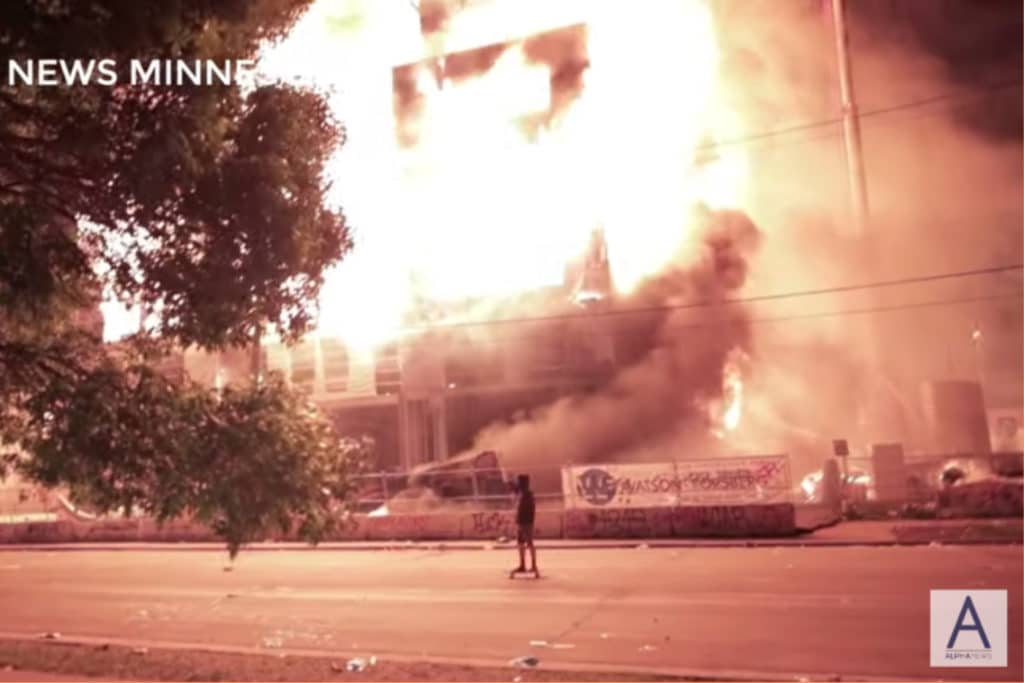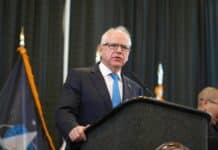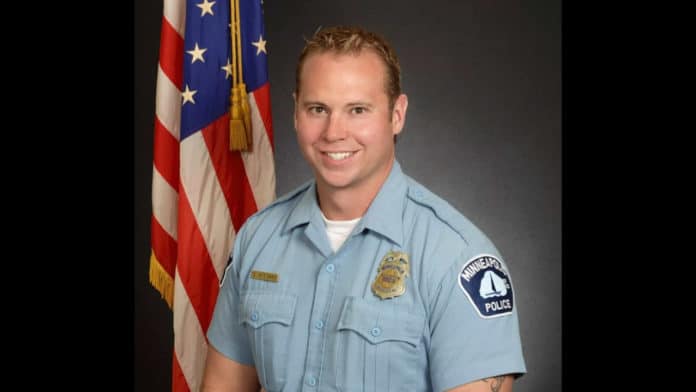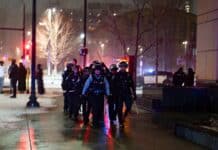Post-traumatic stress disorder (PTSD) is impacting first responders across the United States, especially in Minnesota, where the number of emergency personnel suffering from the disorder escalated shortly after the 2020 riots.
June is PTSD Awareness Month and former Minneapolis police sergeant Chris Steward spoke with Alpha News about how PTSD took away what he loved doing most: his job.
‘We can’t show emotion’
“Throughout my career I’ve seen hundreds of dead bodies, hundreds of shooting victims, stabbing victims, victims of domestic assault,” Steward told Alpha News.
“People assault us, shoot at us just because of the color of our uniform, the badge that we wear and what we represent,” he added.

When asked if Steward ever recalled a time when he thought his life would end in the line of duty, he said after the riots in 2020, “something just snapped … chemical imbalances.”
“There came a point where I’d rather kill myself than go to work,” Steward admitted.
Steward’s story resonates deeply with hundreds of first responders across the state.
“We as law enforcement officers are expected to be professional,” he said. “We can’t show emotion. We can’t show grief because that shows a sign of weakness.”
Those weaknesses are usually suppressed and never talked about until there comes a breaking point. Steward described how it felt to go into work every day following the riots.
“I could feel my heart racing, my hands would clinch up. I could feel my hands getting sweaty. I’d be more tense. I’d breathe heavier. More anxiety for sure going in and it just increased rapidly during the riots and surely after the riots.”
Workers’ comp denied
Steward had been seeing a therapist even before the riots began in 2020. He exhausted his own sick time and paid time-off until eventually his health insurance lapsed. He was diagnosed with PTSD but that wasn’t enough to get workers’ compensation through the city’s insurance.
“My thought was pretty clear that the city is not going to acknowledge that my PTSD, my mental health-related issues are work-related. I’ve got to continue to provide for my family,” he said.

From the moment of Minneapolis’ collapse following George Floyd’s death, the number of emergency responders applying for disability tripled. In Minneapolis, hundreds of police officers have left the force due to PTSD.
Medical disability retirements in Minneapolis:
2019: 118 applicants
2020: 241 applicants
2021: 307 applicants
2022: 118 (as of May 30)
Labor advocates say the reason employees are resorting to the state’s disability retirement pension, Public Employees Retirement Association (PERA), is because they’re being denied workers’ compensation. Workers’ compensation pays medical insurance for work-related injuries so employees don’t have to pay it out of their own pockets.
“I would estimate probably about somewhere between 95 and 98 percent of all cases involving first responders with a diagnosis of PTSD are denied by workers’ comp insurers,” said Jen Yackley, an attorney with Meuser, Yackley & Rowland, P.A.
Yackley’s firm represents most PTSD claimants statewide. She told Alpha News there are several reasons first responders are denied workers’ compensation. Most commonly, it’s because there are disagreements about whether PTSD diagnoses are work-related or if they’re correctly diagnosed.
On Oct. 1, 2013, the Minnesota Legislature changed workers’ compensation laws to allow workers with post-traumatic stress disorder to recover workers’ compensation benefits without an accompanying physical injury.
As police agencies deal with unprecedented PTSD retirements and staff shortages, local governments are feeling the financial strain.
“Doing nothing this year is not an option. The current system is not working for anyone, for employers and employees alike, and we need to work together to find a solution,” said Rep. Jamie Long, DFL-Minneapolis, during a March public safety committee meeting.
Long sponsored a bill that he says would save local governments millions of dollars by requiring first responders to undergo mental health treatment for 24 weeks — with an option for an additional eight weeks — before becoming eligible for disability. It would also pay medical costs for those already receiving disability payments.
Opponents and supporters
Opponents of the bill, including the Minnesota Police and Peace Officers Association, say that while there are some merits to the bill, it won’t actually resolve the PTSD issue.
“I think the bill is a misguided attempt to address that issue from a cost standpoint and I think it’s frankly detrimental from a mental-health standpoint on behalf of first responders that are in need of mental health care,” said Yackley.
Steward believes legislators are “playing politics” with their lives.
“If this bill passes the way that it is currently sitting, you’ll have more first responders commit suicide because it is easier for them to take their own lives than it is for them to go through the whole workman’s comp process,” Steward said.
Already this year, dozens of police officers across the United States have died by suicide. Both firefighters and police officers are more likely to die by suicide than in the line of duty, according to the MPPOA.
Supporters of the bill, including the League of Minnesota Cities, told Alpha News the primary reason they support the legislation is because it requires the kinds of medical approaches that enable people to recover from PTSD.
“Unfortunately, too many first responders currently aren’t returning to work after a diagnosis. That puts a financial strain on local governments and taxpayers in Minnesota. It creates difficulties in recruiting, retention, and staffing, and it ultimately raises questions about the long-term sustainability of our current model of public safety services,” the League said in an email to Alpha News.
Heroes Helping Heroes
After 14 years in law enforcement, Steward was granted disability retirement and left his dream job. The former MPD officer turned his pain into a purpose and founded a nonprofit called Heroes Helping Heroes.
The organization offers support for first responders coping with mental health issues. There are hundreds of members across the state and they meet a few times a month.
“It’s very therapeutic. We don’t make you talk about your feelings. It’s just an opportunity for you to get together with other first responders, realize that you’re not alone and just to relieve stress to enjoy something that you love doing or try something new,” Steward said.
As others continue to navigate how to heal from their own work-related trauma, Steward is also coping, managing and taking it one day at a time.
“Don’t be afraid to reach out and get help. Your life, your family is more important than this profession,” he said.
Several law enforcement officers told their stories to Alpha News but were not ready to share them publicly. To respect their privacy, Alpha News decided not to include those stories.
If you or someone you know is struggling with thoughts of suicide, there is help available 24 hours a day. Call the National Suicide Prevention Lifeline at: 800-273-8255.











